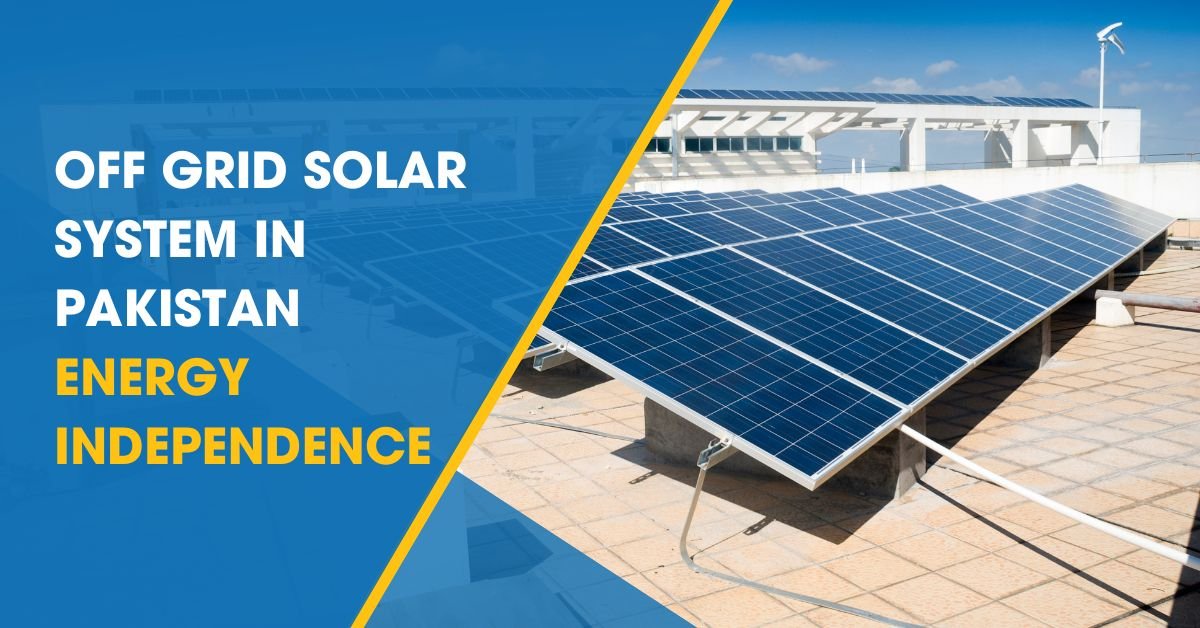Off-Grid Solar Systems in Pakistan: Achieving Energy Independence in 2025
Off-Grid Solar Systems in Pakistan: Achieving Energy Independence in 2025
Blog Article

As Pakistan grapples with escalating electricity costs and frequent power outages, many households and businesses are turning to renewable energy solutions. Among these, the off-grid solar system has emerged as a reliable option, especially for areas with limited or no access to the national grid. This guide delves into the workings, benefits, and considerations of off-grid solar systems in the Pakistani context.
What is an Off-Grid Solar System?
An off-grid solar system operates independently of the national electricity grid. It comprises solar panels, a charge controller, batteries for energy storage, and an inverter to convert stored energy into usable electricity. This setup ensures a continuous power supply, even during grid outages or in remote locations without grid connectivity.
Benefits of Off-Grid Solar Systems
Energy Independence: By generating and storing your own electricity, you reduce reliance on the national grid and avoid issues like load-shedding.
Cost Savings: While the initial investment can be significant, off-grid systems can lead to long-term savings by eliminating monthly electricity bills.
Environmental Impact: Utilizing solar energy reduces carbon emissions, contributing to a cleaner environment.
Reliable Power Supply: Off-grid systems provide consistent electricity, crucial for areas with unreliable grid access.
Cost Considerations in 2025
The cost of installing an off-grid solar system in Pakistan varies based on system size, equipment quality, and installation specifics. As of 2025, approximate costs are:
3kW System: PKR 600,000 – 800,000
5kW System: PKR 750,000 – 950,000
10kW System: PKR 1,400,000 – 1,800,000
These prices include solar panels, batteries, inverters, and installation charges. It's advisable to consult with reputable solar providers for accurate quotations tailored to your specific needs.
Key Components of an Off-Grid System
Solar Panels: Capture sunlight and convert it into electricity.
Charge Controller: Regulates the voltage and current from the solar panels to the batteries.
Batteries: Store energy for use during non-sunny periods.
Inverter: Converts stored DC electricity into AC power for household appliances.
Selecting high-quality components ensures system efficiency and longevity.
Considerations Before Installation
Energy Needs Assessment: Determine your daily electricity consumption to size the system appropriately.
Budget Planning: Factor in initial costs and potential savings over time.
Location Analysis: Ensure your site receives adequate sunlight and has space for panel installation.
Maintenance Requirements: Regularly check and maintain system components to ensure optimal performance.
Conclusion
Investing in an off-grid solar system in Pakistan offers a sustainable solution to energy challenges, especially in remote areas. With the right planning and quality components, you can achieve energy independence, reduce costs, and contribute to environmental conservation. As the country continues to embrace renewable energy, now is an opportune time to make the switch to solar power.
Report this page